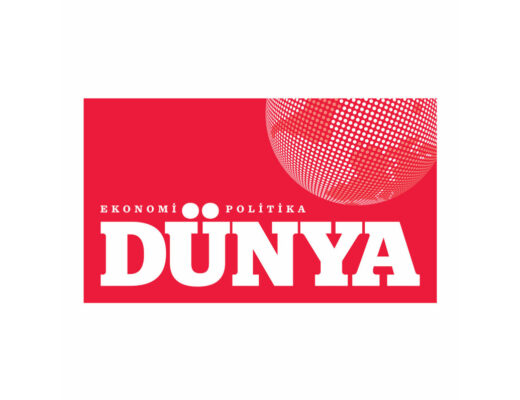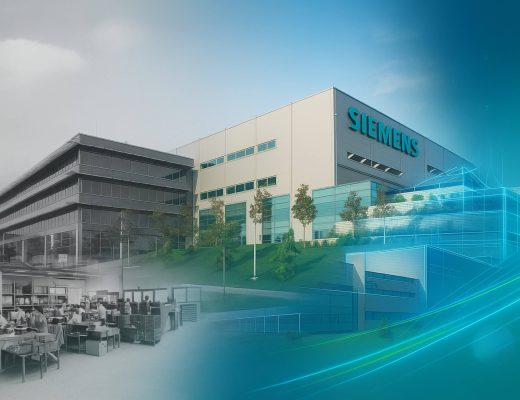Dear Rector Prof. Cemal Yıldiz, Dear Prof. Küçükay,
Distinguished Faculty, esteemed Professors, and dear colleagues,
First, allow me to thank the Faculty of Business Administration of the Turkish German University, in particular Prof. Dr. Ela Sibel Bayrak Meydanoğlu,
and all the participating faculties and universities from Germany.
It is a great pleasure to join you again — to reflect together on how academia and industry continue to learn from one another.
The title of your conference — “Current Issues in Business Management” — could not be more timely.
As you discuss these issues here in an academic setting, we in industry are doing something very similar:
we are wrapping up the year 2025 and opening the chapter of 2026 —
reflecting on what we have achieved, what we have learned, and what lies ahead.
I have just returned from Munich, where Siemens held its annual Business Conference for top management.
It was a week of reflection, ambition, and foresight.
And — not surprisingly — many of the themes we discussed overlap with those of your conference here today.
Foremost among them was Artificial Intelligence — its opportunities, its risks, and its influence on how we lead, how we work, and how we think.
The overarching theme of the Siemens Business Conference was “Winning as ONE.”
At a time when disruption, speed, and uncertainty define our world, we must act as one company, not as many fragmented entities.
We are building one data fabric, one technology fabric, and one culture that unites our people, our businesses, and our customers.
This desire to be ONE is not unique to Siemens.
Every large organization eventually faces the same challenge: how do we unite scale with identity?
Interestingly, in the 1970s, the opposite idea was fashionable.
Corporations encouraged their leaders to be entrepreneurs within the company —
to run their business areas as if they were their own enterprises: creative, growth-oriented, and success-driven.
It was an inspiring message — but many took it literally.
Inside large corporations, small kingdoms emerged — each with its own leadership culture, its own processes, and its own sense of independence.
They achieved success in parts, but they often lost sight of the whole.
They missed what truly unites a company: shared purpose, shared knowledge, and shared values.
Today, we have come full circle.
We have learned that our strength lies not in isolated excellence, but in connected excellence —
in ecosystems where people, technologies, and data interact to create value that no single part could achieve alone.
In digitalization, the highest productivity and creativity are reached when everything and everyone is connected.
True transformation happens when machines, systems, and humans share information seamlessly —
when we move from data stored in silos to data as a living network,
that learns, predicts, and improves outcomes across the entire value chain.
This is what the new Siemens data fabric represents.
Data is becoming the lifeblood of modern industry — not just a resource, but a source of continuous learning and shared growth.
As Werner von Siemens foresaw already in 1886,
progress accelerates when knowledge becomes collective —
when insights are no longer personal possessions but shared capital for everyone to build upon.
In today’s world, that principle is tangible: data shared is value multiplied.
But even as we advance technologically, a new form of pressure has emerged — one I call digital turbulence.
It is more than “digital stress.”
It is the feeling of being constantly pulled in multiple directions by an unending stream of information —
an invisible turbulence that exhausts the human mind.
Studies show a sharp rise in anxiety, particularly among the younger generation,
who live and work fully immersed in this digital swirl.
The human mind has become a browser with too many tabs open.
Here, AI can play a crucial role.
It can help us navigate the labyrinth of digital overload —
filtering information, connecting insights, and allowing us to focus on what truly matters.
But it must not narrow our thinking.
We must ensure that AI assists our judgment — it must never replace it.
I believe, as Karl Popper said, that life is constant problem solving.
Everything changes and flows, and nothing remains still.
To survive and to prosper, we must take our time to think, to reflect, and to connect.
Innovation, at its core, is not only about intelligence but about experience —
about understanding emotions, purpose, and meaning.
These are the dimensions that no machine can truly comprehend.
A machine can process data, but it cannot feel wonder.
It can identify patterns, but it cannot interpret values.
It can optimize outcomes, but it cannot define what is worth striving for.
At Siemens, we stand at the intersection of the physical and digital worlds.
We use AI to redefine that connection.
A simple example is our Industrial Copilot —
a digital assistant that helps engineers write code, design automation systems, and test ideas in seconds.
It allows people to focus on creativity, decision-making, and innovation — the areas where human judgment truly matters.
Yet, I remain a cautious optimist.
My skepticism, if I may call it that, is rooted in the word learning.
AI is learning — and so are we.
We are learning to understand how AI might change us — to the better, or to the worse.
İnovasyonu insan deneyimiyle birlikte düşündüğümüzde, Siemens olarak fiziksel dünya ile dijital dünyanın kesişiminde konumlanıyoruz. Yapay zekâyı ise bu bağlantıyı güçlendirmek için kullanıyoruz. Bunun güçlü bir örneği Industrial Copilot. Bu dijital asistan, mühendislerin kod yazmasına, otomasyon sistemleri tasarlamasına ve fikirlerini saniyeler içinde test etmesine yardımcı oluyor. Bu sayede insanlar yaratıcılıklarını ortaya koyabilir, daha hızlı karar verebilir ve yeni fikirler geliştirebilir. Bu alanlarda gerçek farkı ortaya çıkaran ise insan sezgisidir.
There are two sides to this question:
First, how we use or abuse technology — whether it serves humanity or begins to dominate it.
And second, what capabilities we lose and what we gain.
AI may soon achieve 99.9% accuracy.
Until then, we still need experts to verify and interpret its output.
But what happens when we reach that level of near perfection —
and we have stopped developing those experts, those thinkers,
who can question the system and see what the algorithm cannot?
Here, the legacy of our founders remains deeply relevant.
Werner von Siemens, in 1886, spoke of a scientific age that would elevate humanity through the unity of science and technology —
but he warned that progress must remain guided by reason and moral purpose.
Nearly eighty years later, Ernst von Siemens reminded his managers that character comes before performance,
and that trust and empathy are the foundations of leadership.
Their message is timeless.
Technology must never replace reflection.
Leadership must never lose its character.
And progress must always remain human at its core.
As we enter the age of artificial intelligence, we stand on the same foundation —
the belief that innovation must serve people, that growth must create value for society,
and that knowledge must be shared responsibly.
Our challenges and opportunities are clear:
We must overcome digital turbulence through simplification and focus.
We must ensure that AI enhances human capability, not replaces it.
We must nurture experts and thinkers, not only users of systems.
And we must build ecosystems of collaboration,
where data, technology, and people reinforce one another.
And this is where I turn to you — the academic community.
The industry looks to universities as partners in shaping the next chapter.
We rely on your research to help us understand how technology affects organizations and people —
not just economically, but ethically and psychologically.
We count on your ability to educate critical thinkers, not passive tool users;
to connect business with responsibility, data with wisdom, and innovation with purpose.
Because while we cannot predict what lies ahead, we can shape it —
through knowledge, curiosity, and courage.
And if we remember that innovation begins with reflection,
that leadership starts with character,
and that progress is always a human story —
then we will move forward with confidence.
The future, as I said, is not predetermined.
The future is open.
This is the full text of the opening speech delivered at the “Current Issues in Business Management” event held at the Turkish-German University on October 24, 2025.






No Comments